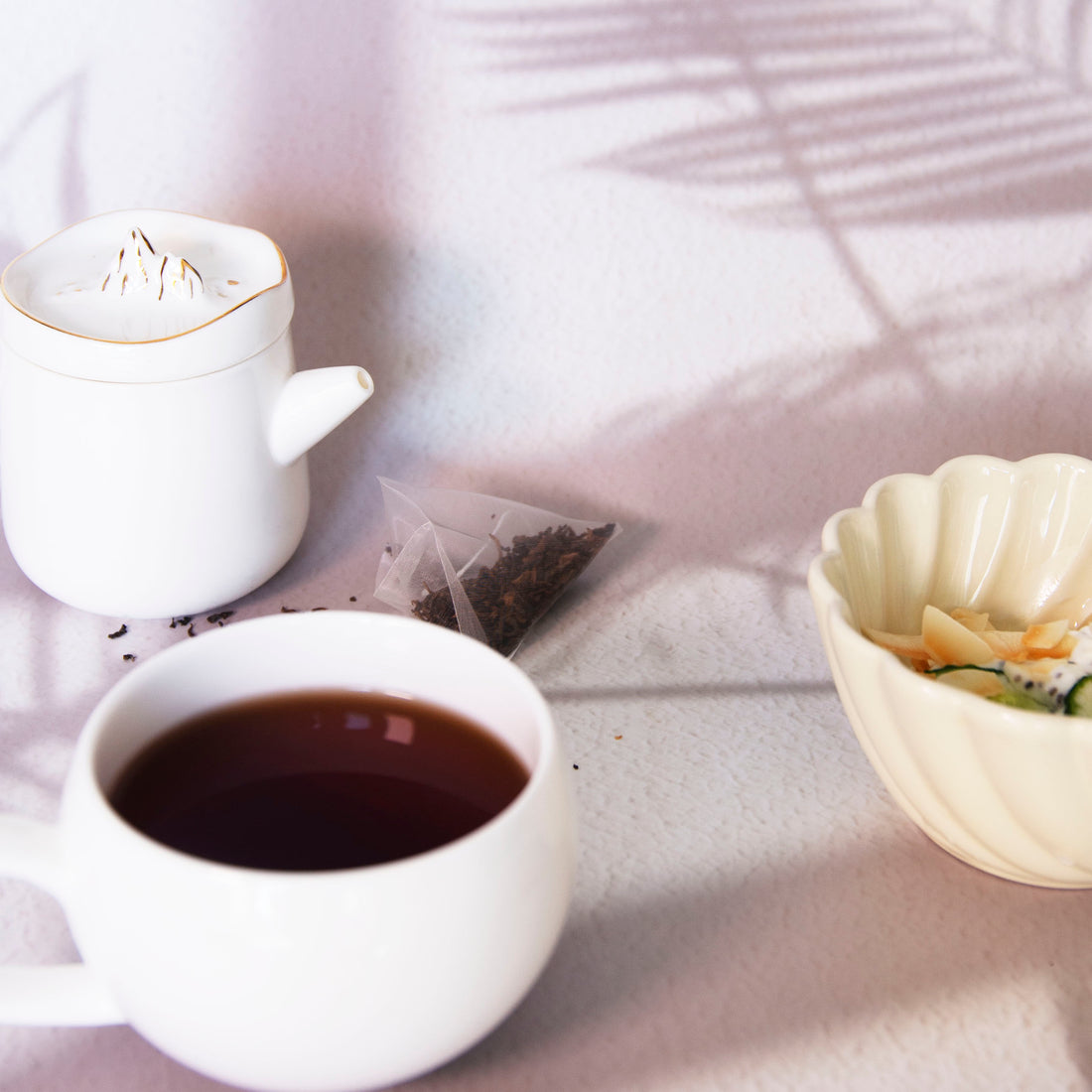
What Tea Is Best After Junk Food? How to Detox After Eating Fried Food
Share
Indulging in junk food or fried dishes is something most of us enjoy occasionally, but the aftereffects—bloating, heaviness, or sluggish digestion—can leave us feeling less than our best. Fortunately, Chinese tea offers a natural way to support your body’s recovery and detoxification. Here, we explore the best teas to enjoy after eating junk food, why they’re beneficial, and additional activities to enhance recovery.
Why Junk Food Affects Your Body
Junk food is often high in unhealthy fats, refined sugars, and sodium. These components can:
- Slow down digestion
- Cause bloating and discomfort
- Lead to a temporary spike in blood sugar levels
- Strain the liver as it metabolizes fats and toxins
Drinking tea after a heavy or oily meal can help mitigate these effects by boosting digestion, balancing the body's internal systems, and aiding detoxification. Complementing tea with other activities can further enhance your body’s recovery.
Top Teas for Detox After Junk Food
1. Pu’er Tea (普洱)
Our premium Pu’er tea is crafted to perfection, offering a rich, earthy flavor that’s perfect for aiding digestion and reducing bloating. Available now in loose-leaf form for optimal freshness.
Pu’er tea is a fermented tea that’s renowned for its digestive benefits. It helps break down fats, reduces bloating, and supports gut health. Studies have shown that Pu’er tea can:
- Enhance fat metabolism
- Lower cholesterol levels
- Promote smoother digestion
How to Brew:
Use about 5 grams of Pu’er tea leaves and steep them in hot water (95°C/200°F) for 3-5 minutes. It’s best to drink it warm after a meal.
2. Oolong Tea (乌龙茶)
Experience the delicate balance of our handcrafted oolong tea, known for its floral and fruity notes. Perfect for cutting through the heaviness of oily meals.
Oolong tea, also known as Qing Cha, is semi-oxidized, offering a balance between green and black teas. It’s known for aiding digestion and cutting through the greasiness of oily foods.
- Helps regulate blood sugar levels
- Promotes lipid metabolism
- Reduces the feeling of heaviness after eating
How to Brew:
Steep 3-5 grams of oolong tea leaves in hot water (85–90°C/185–194°F) for 3 minutes. Its floral and fruity notes make it a delightful post-meal choice.
3. Green Tea (绿茶)
Our Longjing green tea, also known as Dragon Well, is a classic choice for its refreshing, nutty flavor and health benefits. It’s ideal for daily consumption or post-meal detox. Available in loose-leaf packs.
Green tea is rich in antioxidants and catechins, which can help combat inflammation and oxidative stress caused by unhealthy food. Its slightly astringent nature also refreshes the palate.
- Supports liver detoxification
- Boosts metabolism
- Reduces oxidative damage
How to Brew:
Steep 2-3 grams of green tea leaves in hot water (75–80°C/167–176°F) for 2-3 minutes. Avoid over-steeping to prevent bitterness.
4. Chrysanthemum Tea (菊花茶)
This caffeine-free herbal tea is often paired with heavy meals in Chinese culture. It’s known for its cooling properties, helping to:
- Soothe the stomach
- Reduce inflammation
- Aid in detoxification
How to Brew:
Use 4-5 dried chrysanthemum flowers and steep them in hot water (90°C/194°F) for 5 minutes. Add a touch of honey for sweetness if desired.
5. Hawthorn Tea (山楂茶)
Hawthorn berries have a tangy flavor and are traditionally used to improve digestion and reduce fat absorption. They’re particularly effective after fried or fatty foods.
- Improves blood circulation
- Enhances the breakdown of fats
- Prevents indigestion
How to Brew:
Steep 5-6 dried hawthorn slices in hot water (90°C/194°F) for 10 minutes. The resulting tea is both refreshing and beneficial.
Additional Activities to Support Detoxification
While tea provides an excellent foundation for recovery, incorporating the following activities can further enhance detoxification and overall well-being:
1. Take a Short Walk
A 10-15 minute walk after a heavy meal can:
- Stimulate digestion
- Improve blood circulation
- Prevent post-meal lethargy
Walking at a moderate pace is especially beneficial for reducing bloating and aiding the body’s natural detox processes.
2. Engage in Gentle Yoga or Moderate Exercise (1 Hour Post-Meal)
After waiting about an hour to allow digestion to begin, try incorporating gentle yoga or moderate-intensity exercises like Zone 2 cardio or light weight training. These activities can:
- Enhance fat metabolism
- Improve circulation and oxygen flow
- Support digestion and detoxification
Yoga Options: Poses like Cat-Cow, Child’s Pose, or Supine Twist gently massage digestive organs and relieve discomfort.
Zone 2 Cardio: Maintain a pace where you can still hold a conversation for steady fat-burning.
Weight Training: Light weight exercises can activate metabolism and provide a boost in energy.
3. Deep Breathing
Practice mindful breathing exercises to:
- Reduce stress and improve digestion
- Enhance oxygen flow to vital organs
Try the 4-7-8 technique: inhale for 4 seconds, hold for 7 seconds, and exhale for 8 seconds. Repeat this cycle for a few minutes.
4. Stay Hydrated
In addition to tea, drink plenty of water to:
- Flush out toxins
- Support kidney and liver functions
- Reduce bloating
Warm or room-temperature water is preferable after a meal.
Tips for Maximizing the Benefits of Tea and Activities
Occasional indulgence in junk food is inevitable, but choosing the right tea and incorporating simple activities can help your body recover more quickly. Pu’er tea, oolong tea, green tea, chrysanthemum tea, and hawthorn tea each offer unique benefits that support digestion and detoxification. Complement these with a walk, gentle exercise, or mindful breathing to restore balance and feel your best.
Ready to Start Your Detox Journey?
Try our premium selection of Pu’er tea, oolong tea, and Longjing green tea to experience the natural benefits of Chinese tea. Shop now and discover the perfect companion for your healthy lifestyle:
Shop Now and take the first step toward a healthier you!
